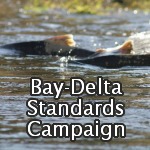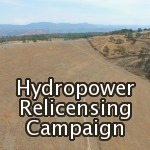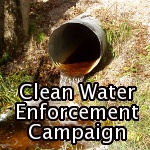Article from Calaveras Enterprise.
April 11, 2024
By Tori James
A review process is underway for an effort that seeks to do away with a lengthy, costly federal agency’s relicensing process to spare local water customers from having to help pay for it.
The Utica Water and Power Authority (UWPA) has begun applying to the Federal Energy Regulatory Commission, better known as FERC, to request small conduit hydroelectric facility exemptions for UWPA’s two hydroelectric powerhouse projects. The agency’s two small hydroelectric powerhouses that form the basis of two FERC licenses (the P-2019 Utica Project and P-2699 Angels Project) currently include not only the powerhouses but also the associated water conveyance facilities.
The proposed move would not require the physical removal of project facilities and UWPA would still retain control and ownership of all dam and canal facilities.
If granted, FERC’s purview would be largely reduced and become limited to just the powerhouses and transmission equipment, meaning that the small conduit exemptions would surrender FERC’s regulatory oversight of portions of the projects outside of those boundaries.
However, the facilities would remain subject to other applicable requirements of state law, as regulated by agencies such as the California Department of Fish and Wildlife and State Water Resources Control Board.
UWPA’s primary purpose is to operate and maintain a water conveyance system that provides the sole public water supply to 10,000 people in the Murphys, Douglas Flat, Vallecito, and Angels Camp communities and provides irrigation water to hundreds of acres of agricultural land in Calaveras County.
Along with the two hydroelectric powerhouses, whose power generation capabilities help offset the maintenance costs, the system includes five dams and reservoirs and 27 miles of wooden flumes and earthen canals that convey the water to partnering agencies, to whom it wholesales water supplies for their customers.
Licenses expire in 2033
According to UWPA General Manager Joel Metzger, barring an exemption or unless the agency decides to not renew its FERC licensing that enables the hydro plants to continue operating, the licenses are currently set to expire in 2033.
The costs to relicense both projects, based on similar FERC project relicensing costs in the region, are initially estimated to possibly run as much as $10 million. Metzger noted that the agency’s annual budget is about $3 million. He added, “The relicensing process itself could take many years, and FERC relicensing processes are often delayed, and the existing licenses may be extended until relicensing is complete.”
As UWPA does not have enough funds in reserves to pay for relicensing, Metzger said the costs of relicensing would have to be passed on to water ratepayers in Murphys, Douglas Flat, Vallecito, and Angels Camp, or Utica would need to take on debt, which would also impact ratepayers over the long term. He stressed that the agency does have the funds, allowing it to continue taking care of its water system and ensuring that it remains good stewards of its associated resources.
The option of seeking a FERC exemption has been under consideration for many years by UWPA management and agency board members, according to Metzger. In 2021, he said Utica conducted a long-term operational analysis that looked at several options, including decommissioning the powerhouses, to evaluate ways of protecting and operating the water system while meeting the needs and economic realities of the community.
“That analysis concluded that pursuing a FERC exemption was the best option for Utica moving forward,” Metzger stated, adding that discussions with FERC staff in Washington, D.C., indicated that the two hydropower projects might qualify for a FERC-authorized conduit exemption.
Such exemptions are issued in perpetuity, so they are expected to be less costly than the process of relicensing that would otherwise be required every 30 years for the remaining life of the projects. Metzger maintained that not having to relicense the hydro projects again would create substantial operational efficiencies and savings for the community, now and for future generations.
“This process is not about getting out of our environmental or operational responsibilities,” he emphasized. “Similar to other water supply systems in the state, our projects would still be required to comply with and follow applicable federal, state, and local regulations and environmental protection measures.”
Process underway
He said it was two years ago when the board directed staff to pursue a conduit exemption, after which the agency began working with a team of consultants and legal counsel about the process. Over the course of the past year, the agency met with key stakeholders to discuss the exemption process ahead of developing draft FERC applications. On Dec. 20, the agency circulated the draft applications to more than 60 potentially interested parties, and about a month later, on Jan. 25 of this year, it hosted a joint meeting and visit to the two hydroelectric plant sites.
Metzer said it is the position of the UWPA board and staff that obtaining the exemptions will provide more long-term stability in regulatory requirements and further allow the agency to better work within a framework that is primarily driven by state and local agencies rather than funneling most regulatory compliance through a single federal agency.
“We think most agree that California, probably more than any other state, has adequate environmental and regulatory oversight to ensure we are held accountable to protect the community’s water and natural resources,” Metzger said.
“Under an exemption, Utica could work more directly with tribes, state and local agencies to manage the water supply system more efficiently and cost-effectively while continuing to be a good steward of the natural resources we manage.” Getting the exemption would also reduce the need to increase associated rates for the agency’s water delivery to residents receiving water supplies through the partnering districts that service Murphys, Douglas Flat, Vallecito, and Angels Camp.
While UWPA does not currently have an anticipated time or cost estimate for its application process, it expects the process, already a year in, might take four years from start to finish, and that the agency should have a better handle on associated costs in the coming months. “In many cases, costs will depend on the findings of environmental surveys, which are expected to take place in 2024,” Metzger said. “We expect the process of applying for exemptions will cost less than relicensing, but it is important to note that these costs would be a one-time cost versus a recurring cost every 30 years.”
Metzger reported that of 29 letters submitted during the comment period across stakeholder groups, 24 were supportive.
Stakeholders in support
These came from the City of Angels, Calaveras County Board of Supervisors; Calaveras Public Utility District, Union Public Utility District, Calaveras County Water District, Murphys Sanitary District, and Dogtown Ditch Association; U.S. Congressman Tom McClintock, Mother Lode Sen.Marie Alvarado- Gil and Assemblymember Jim Patterson; John Kessler, the UPA’s consultant serving as its chief dam safety engineer; California Valley Miwok Tribe and Calaveras Band of Mi-Wuk Indians; Ebbetts Pass Fire District and Calaveras Foothill Firesafe Council; Murphys Business Association, Murphys Community Club and Ironstone Vineyards; Kautz Farms, Bottomley Family Trust, Angels Camp ranchers Bill Airola, Dick Rolleri and Don Peirano; and Murphys resident Larry Thompson.
UWPA received neutral letters from the U.S. Forest Service, California Department of Fish and Wildlife and State Water Resources Control Board, regulatory partners, which each specified requests for additional studies. The water board, for example, requested an extensive study to obtain a better understanding of how water quality is affected by ongoing operations of the two hydroelectric projects and provide sufficient information to ensure protection of water quality objectives, beneficial uses as well as inform conditions of a water quality certification.
In its letter, the water board also indicated its staff believed that, in addition to the option of relicensing, small hydroelectric facility exemptions that maintain the existing FERC boundaries would be more appropriate for UWPA to pursue than small conduit exemptions. The letter pointed out that small hydro exemptions apply to hydroelectric projects with a generating capacity of less than 10 megawatts. It went on to state that with FERC relicensing or small hydro exemptions, the water board could issue a certification for the activity as a whole, and effectively and efficiently ensure adequate water quality protection for the projects.
The California Sportfishing Protection Alliance was the sole agency that submitted a letter of concern. CSPA Executive Director Chris Shutes, who explained his position to the Enterprise, has been working on FERC projects for 25 years. “I’ve seen the good, the bad, and the in-between—there are multiple interests in every one—and they are all different with some similarities,” he said.
Shutes’ position is also that UPWA would be better off going for small hydroelectric facility exemptions instead of conduit exemptions. Among his main concerns, he said. “How many miles of stream are involved with the movement of water in their conduits, and how is that stretch of stream going to get protected?
“The issues really are: is there a regulator or regulators that can take on responsibility to make sure the natural resources are protected in the future, and will it create a precedent that a large project with a different set of circumstances could unreasonably take advantage of the conduit exception because of the precedent set here?”
He argued that findings at the end of the process of granting or not granting an exemption become the basis for arguing how future applicants will argue. “So what seems like a small, unimportant decision becomes the basis for another, more important exemption. It has happened before.” Shutes added that his goodwill was on the table and that he was willing to work with Metzger. “He and his consultant understand the concern about other projects; I want to do it in a way that doesn’t open the door for this kind of use of expansion in areas that are not appropriate.”
Eyeing the process
With the goals of protecting natural resources and helping make the process better and fairer for everyone, Shutes acknowledged that while costs are part of it, so are the appropriate studies. “A lot of times studies don’t meet the mark or studies that should get done don’t get done… I think the precedent is important, and I am not here to be an obstructionist. I want to help find a solution so that hydropower projects across the country are appropriately regulated.
“I realize there is a cost consideration, and it is important in this particular case as well as generally…The viability of foothill and mountain communities is important to me, specifically and generally, and we want to come up with a solution that allows Utica to deliver water at an affordable cost while also protecting the resources affected by the water delivery system.
“This is not just lip service,” Shutes emphasized. “I have lived in California for many decades and see that smaller communities have been pushed and pulled. It is important that they maintain their qualities and character and are able to enjoy and afford it.”
After reviewing all the comments in the 29 letters as part of its draft application process, UPWA staff will present an overview of the comments, requested studies and other near-term action items at an upcoming board meeting. At that point, Metzger stated, “We will also discuss the costs and schedules for any early studies we plan to initiate and updates to our estimated costs to complete our efforts to submit final exemption applications.”
As for the concerns raised in the letter from the CSPA, Metzger acknowledged that the agency has been in communication with the group over the past several months. “First, we appreciate their dedication to protecting and preserving our community’s natural resources,” he said. “Prior to submitting their comments, we were able to have a good conversation with CSPA staff to better understand their concerns, some of which are specific to our projects and some of which are about the conduit exemption process.”
He added, “We take all comments seriously and look forward to addressing the concerns raised. Our goal is to provide the information needed to address their areas of concern and see if we can find a way to have CSPA ultimately support this effort.”
UWPA Board Vice Chair Caroline Schirato has stated that the Utica board has identified the FERC Conduit Exemption applications as its top priority. “Providing the sole public water supply to nearly 10,000 people in our community is something we take very seriously,” she stated. “The board recognizes the importance of operating our water system in an efficient and cost-effective manner while continuing to be an excellent steward of the natural resources we manage.
“The board is very conscious of the ongoing costs associated with FERC relicensing and want to ensure that our ratepayers are not having to pay for something that may not be necessary,” Schirato continued, adding that the board members are optimistic the exemptions will be approved by FERC in the coming years.
For more details on the application, visit https://www.uticawater.com/exemption/









